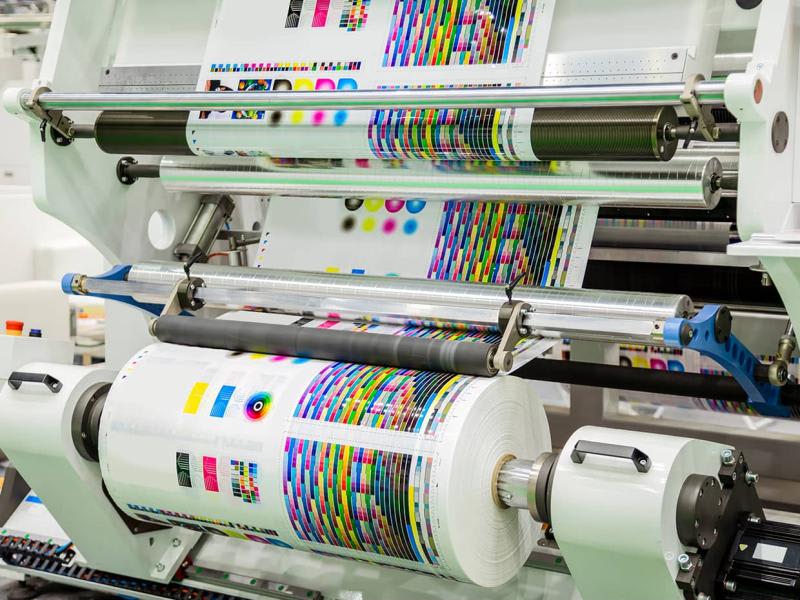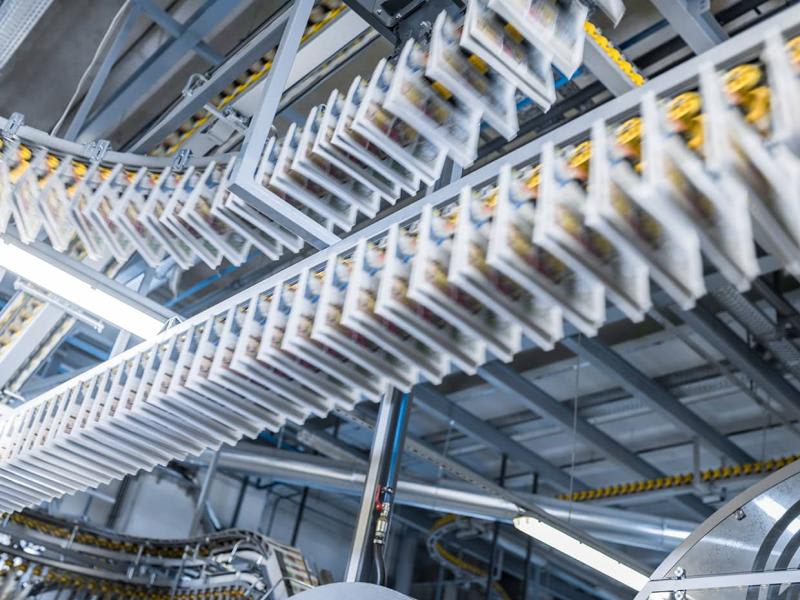If you want to run a successful manufacturing business, you need the right leadership skills.
Global changes are reshaping the manufacturing industry. Digitisation (also known as Industry 4.0) has overhauled many standard operations. And the world is scrambling to address climate change, placing new expectations (and regulations) on manufacturers in the process.
As these trends reshape the industry, it is changing the way manufacturing businesses operate. New leadership styles are also emerging, with skills and approaches more suited to the digital manufacturing landscape of Industry 4.0.
Here are some key leadership skills manufacturing businesses will need to succeed:
1. Sustainable leadership
Be a leader who puts the planet first.
As the world increasingly focuses on fighting climate change, it's affecting the manufacturing industry. Leaders in manufacturing must make taking care of the environment a big part of how they make decisions.
The leaders who do this well will be the ones who:
- Foster a culture of sustainability
- Set ambitious eco-friendly goals
- Ensure that sustainable practices are at the heart of everything their company does
But, for leaders who take longer to embrace these changes, there will be additional hurdles. These include:
- Changing the old ways of doing things
- Changing the way people think
- Changing how the company measures performance
- Making these adjustments will take additional time.
2. Technological Proficiency
Get tech-savvy and familiar with digital tools.
Digitisation changed the world, with a digital revolution fast-tracked by the COVID-19 pandemic. In the manufacturing sector, this includes technologies such as:
- the Internet of Things (IoT)
- Artificial Intelligence (AI)
- Data analysis
- Automation
- Digital twins
It is vital that manufacturing leaders understand and embrace these technologies. Like captains of a ship, their role is to guide their teams in using these digital tools. When used correctly, these digital solutions will help your team work better, create less waste and minimise environmental impact.
Beyond knowledge, successful leaders must embody a digital mindset, embracing new ways of working.
3. Data-Driven Decision Making
Make better decisions, backed by numbers and logic.
Digitisation lets us gather and study data on a massive scale. Smart leaders will embrace the advantages offered by data-driven decision making.
Data analytic offers manufacturing leaders more than just improved decision making. It also grants insights into energy consumption, emissions and resource usage. These kinds of insights can offer a significant competitive advantage for manufacturers.
Through digital data analysis, you can identify areas for improvement and optimise manufacturing processes with minimal environmental impact.
As we move into the decidedly digital era, winners and losers will emerge in the manufacturing industry. The effective leaders will be those who insist on making decisions based on data. The best will be the ones who actively champion its role in the decision-making process.
4. Agile Adaptation
Learn to navigate the unpredictable.
Digitisation and climate change bring uncertainty to manufacturing. Manufacturing companies must adapt to shifting market needs, new technologies and changing environmental rules. Agile leaders with adaptable leadership styles can swiftly respond to these changes, giving their companies a significant advantage.
Adaptive leaders understand that there can be multiple ways to solve problems. They are able to accept some uncertainty and don't wait for perfection before taking action. A growth mindset has never been more important.
5.Collaborative Leadership
Work together to make manufacturing greener
To be effective in addressing climate change concerns, you need everyone on board. As a leader, you will need to work with a wide range of stakeholders, including customers, suppliers, regulators and communities.
The best way forward will be to adopt a transparent and inclusive leadership style. Talk to your stakeholders and determine what sustainable business practices they expect. When you understand their expectations, it's easier to adjust your business practices to align with them.
The most effective leaders see learning from others as a strength, not a weakness. In fact, seeking out and listening to a wide range of opinions will drive better outcomes for your manufacturing business.
6. R&D Focus
Find innovative solutions and stay ahead of the pack
Manufacturing is changing fast. To stay competitive, leaders need creative thinking and innovative solutions. Investing in research and development(R&D) can help you find eco-friendly and technologically advanced solutions. As a collaborative leader, you can also partner with like-minded organisations to achieve better outcomes.
The key is changing your mindset. Going forward, 'business as usual' won't lead to success in manufacturing. Instead, successful leaders will adopt a mindset of 'innovation as usual.'
7. Long-Term Vision
Look ahead to plan for change
Climate change is a long-term challenge that requires strategic planning and visionary leadership. As a leader, you are responsible for aligning your company's long-term goals and strategies with ongoing environmental requirements.
Thinking about things in the long term means seeing the bigger picture. Manufacturing leaders should look to external sources for learning opportunities. This will help you develop a better perspective of your business as a whole. Then, you can shape the future instead of merely reacting to things as they happen.
8. Developing Talent
Train your workforce with digital skills and eco-conscious habits
The demand for sustainable business practices has converged with the digitisation of manufacturing. To meet these demands, manufacturers need workers with the skills to navigate these complex changes.
As a leader, you need to invest in developing talent within your team. Train them to handle both advanced technologies and sustainable business practices.
Remember that these skills will be in high demand across all sectors. Investing in education to cultivate your internal talent may be more cost-effective than waiting to recruit when the need arises. Proactive talent planning will be a core leadership responsibility.
9. Risk Management
Analyse risks and be prepared
Climate change poses new risks to manufacturing businesses. This includes problems such as supply chain disruptions caused by extreme weather events.
Adopt risk management approaches that account for climate-related uncertainties to overcome potential challenges and ensure business continuity.
Take charge of change with RSM
Together, digitisation and climate change have transformed manufacturing, leading to a need for new leadership styles going forward. Manufacturing business leaders will need to become environmentally conscious, technologically savvy, data-driven, and adaptable. Focusing on developing or improving these skills will help manufacturing leaders position their business for success in a rapidly evolving world.
At RSM, our dedicated management consulting team specialises in empowering manufacturing leaders to take charge of change.
Our practical services include:
1. Designing the future. We can help you develop or overhaul:
- Business Strategies
- Transformation Strategy
- Business Models
- Digital Transformation Roadmap
2. Set up the conditions for success. We can help develop your capabilities through:
- Leadership team alignment and development
- Executive coaching
- Organisational design and restructuring
- Operational assessments
3. Delivering on the plans. We also provide:
- Change and Project Management resources
- Program reviews and audits
For More Information:
Contact your local RSM office to find out how we can help your manufacturing business.




